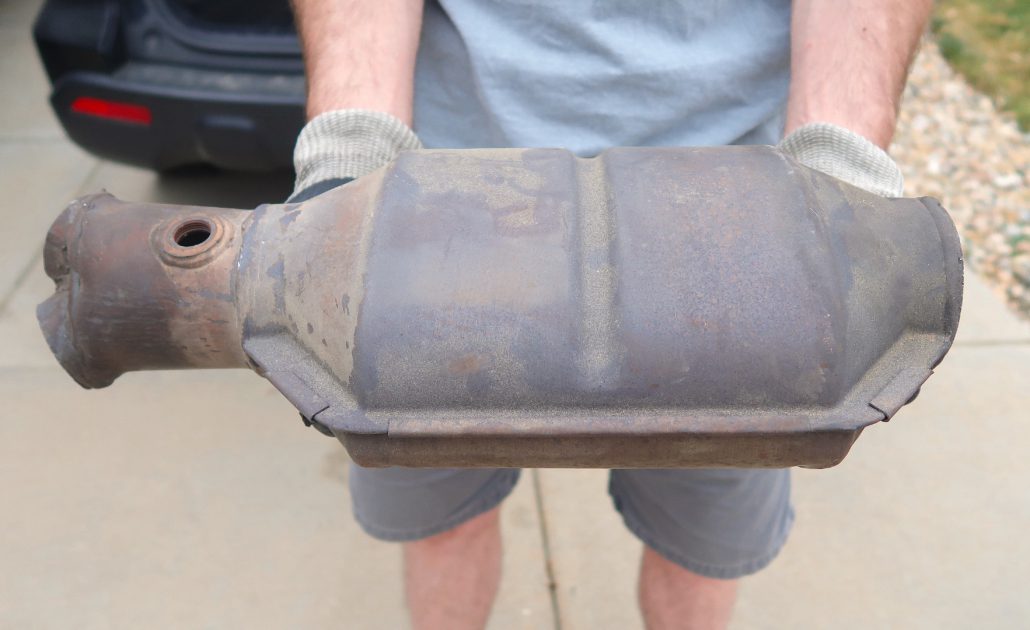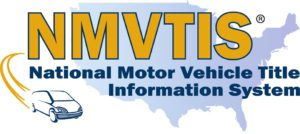Vehicle Repossessions On The Rise
Car loan delinquencies have been rising…
auction companies will repossess 11% more…
Car loan delinquencies have been rising…
auction companies will repossess 11% more…
“Barriers to Entry” – In economics, obstacles that make it difficult for a firm to enter a given market. They may arise naturally because of the characteristics of the market, or they may be artificially imposed by firms already operating in the market or by the government. – Brittanica
When conducting a typical private treaty transaction, you only need 2 people to execute a deal; a buyer and a seller. Auctions, on the other hand, are a unique and much different form of commerce. Its sole existence is dependent on multiple potential buyers where every transaction has a winner and one or more losers. That competition is what generates our special marketplaces and the potentially infinite price ceiling for an asset. Each auction and each auction company must establish criteria that balances the desire for as much participation as possible with a reasonable amount of assurance that any auction contract will be consummated to completion so the seller (and in turn, the auction company) will get paid.
So how does this academic concept apply to abandoned vehicle sales?
Here’s the concept at its basic core as it applies to the abandoned vehicle market:
If your auction vendor has a HIGH barrier to entry, there will be FEWER participants in your auction, which will yield LESS revenue, but have the potential for a higher collection rate.
If your auction vendor has a LOW barrier to entry, there will be MORE participants in your auction, which will yield MORE revenue, but may result in a slightly lower collection rate.
How does Peak Auto Auctions handle barriers to entry?
At Peak Auto Auctions, we have a unique philosophy when it comes to entry barriers. We use a combination of computer-based and human intelligence to allow as many people as possible to enter an auction, but then apply aggressive strategies to restrict or expel persons that are not likely to complete a transaction successfully.
What’s the bottom line impact?
Peak uses advanced online fraud technology, credit card verification, and professional customer service and collections departments to constantly monitor potential and winning bidders to turn electronic bids into completed sales.
Why does Peak adopt this hybrid strategy?
Peak Auto Auctions was born out of a need for the tow industry to have abandoned vehicles sold confidently and accurately. We recognize that our clients have finite space requirements, and need the speed and surety associated with as-is auction sales. We measure our success not only on the price point obtained for our clients, but also the rate of sold vehicles that are promptly paid and picked up.
For more information about Peak Auto Auctions and its abandoned vehicle marketing program, please visit:

Sell With Us
This is the time of year when we tend to reflect on the things we are thankful for…

Rejected paperwork can cost you money by eliminating days of storage that can be charged or ultimately the ability to sell the vehicle. You lose time by having to start your process over and repeat the steps you’ve already taken, including a visit to the agency office to file your paperwork. And the grief comes when something isn’t right, you’ve already sold the car and the owner hires a lawyer to sue you.
Making sure the information you are working with and the processes you employ in your office are correct can save the day. For example, making sure the records of owners and lienholders you use to send notification letters in real- time is imperative. The last thing you want to do is use stale data that doesn’t accurately reflect the interested parties on the title and registration. You may have to prove you sent the letters in good faith. If that information was accessed in real-time you can demonstrate that is what was provided by the DMV. But if your source provides records that could be as old as 30 days, you are flirting with disaster. Always check your data source for timeliness!
Reading tow statutes is enough to make you pull your hair out but making sure you are following the rules when it comes to sending notifications in the manner and timeframe required by your state rules is obviously key to acceptable paperwork. Including the vehicle and location details outlined in the statute and making sure your response to an owner meets the spirit of the law, is paramount in covering yourself and your business interests during the process.
Tow statutes can change every year when your state legislature is in session. If you are a member of an association keep an eye out for legislative alerts or do your own research. Keep a link to your jurisdiction’s website and rules related to the abandoned vehicle process on the desktop of everyone who processes paperwork. If there’s confusion, check with the agency that has oversight and ask for clarification. Bottom line – stay informed, focus on accuracy, and avoid the grief that comes with rejected or incorrect paperwork.
Re-Post from WYFF
https://www.wyff4.com/article/soaring-gas-prices-felt-across-different-upstate-industries-altering-business/40256763
We came across this article posted on the Greenville SC News and Weather station WYFF News 4 website. It’s worth a read to anyone who has to fill a tow truck with fuel! We’re sharing it here with thanks to WYFF!
As gas and diesel prices continue to pound the towing industry with average prices around $5 per gallon. According to AAA, two main factors for the drastic rise includes the costs of crude oil, and the demand.
“In South Carolina, we’ve gone up over a quarter in a week’s time,” said Tiffany Wright, AAA Carolinas spokesperson. “So, to say that gas prices are on the rise would be an understatement. So, in fact, gas prices are rising and it’s been this way for the last couple of weeks.”
According to AAA, the average cost of regular unleaded in South Carolina was $4.60.
However, it’s the rising costs in diesel fuel specifically that is having a huge impact on certain businesses like the towing industry.
We can’t run the trucks without the diesel
“We can’t run the trucks without the diesel,” Theresa Rodriguez with Willimon’s Towing said. “Unfortunately, because of diesel prices, it makes it harder for us to help these people in the community because they can’t afford it, and we can’t afford not to have those customers. That’s what keeps these trucks on the roads.”
According to AAA, the average cost of diesel in South Carolina was $5.63.
Willimon’s Towing has been in Greenville since 1967. The owners said this is one of the worst spikes in gas prices they’ve ever seen, now forced to raise its service prices, to help offset the costs of gas as a 24/7 company. Willimon’s Towing averages anywhere from 50 to 75 tows a week.
“The cost of diesel going up has forced us to raise our prices even for our smallest in-town tows,” Rodriguez said. “Sometimes you have people call in the night, and you send a truck out and they run 30 miles. You get there, and the people no longer need a tow. So, we’ve burnt diesel. It’s forced us to have to raise the prices on each individual tow.”
Rodriguez said if the prices continue to rise, so will their service prices. She said they have to continue operating as an essential service to the community.
They’re Tow Truck Drivers…
“They’re (tow truck drivers) just like emergency responders,” Rodriguez said. “When there’s accidents throughout the city, these trucks are the ones that clear the roads. When there’s disabled vehicles throughout the city, these trucks are the ones that clear the roads.”
Willimon’s said the gas prices are impacting everyone in different ways, especially if someone with car trouble has to pay more to have their car moved, in addition to costs associated with issues they’re having with their cars to require a towing service.
All over the country salvage and recycling dealers are riding the wave of fluctuating metal prices. Across the board prices have hit more than an 8-year high and there’s no sign of them going down. Predictions as far out as April 2023 show prices continuing to rise.

There are several reasons for the increase in pricing. The pandemic has had a big impact. Back-ups in supply chains and product not shipping and homebound people deciding to do DYI fix-it projects on their houses and vehicles have driven up demand while supply has diminished. And now the war in Ukraine and the impact on Russian trade has factored in as well.
With the upward tick in prices comes the threat of dishonest players looking for ways to make a quick buck. One of the most prevalent forms of theft right now is of catalytic convertors. The bad guys are stealing them and presenting them for sale at salvage yards and dismantlers/ recyclers. Some of Peak’s tow company customers have reported having the devices stolen from cars on their lots, even with strong security systems in place.
Several states have introduced eral states have introduced legislation that attempts to curb that type of theft. Some are requiring the parts dealer to obtain a statement from the seller saying they have the right to sell it. Others are looking at making theft of the device a felony with stronger sentences if convicted. And others are developing requirements that dealers check the National Motor Vehicle Title Information System (NMVTIS) to determine if the vehicles and its catalytic convertor have been reported stolen.
The best way to minimize the opportunity for thieves to impact your business is to move those vehicles off your lot as quickly as possible. To find out how Peak Auto Auction can help your business turn abandoned vehicles into cash, give us a call at 720-232-2304 or send an email to [email protected].
It happens. You’ve towed a vehicle into your lot and attempted to notify the owner and lienholder to have it picked up with no luck. You notice there’s a bumper sticker on it that says Look Sharp, Be Sharp, Go Army! Do you move forward with taking possession of the vehicle? Not so fast! At this point you want to make a good faith effort to verify whether this vehicle is owned by an active member of the military.
According to the U.S. Department of Defense’s official Servicemembers Civil Relief Act (SCRA) Website, the Servicemembers Civil Relief Act (SCRA) (50 USC App. § 3901 et seq, as amended), formerly known as the Soldiers’ and Sailors’ Civil Relief Act of 1940, provides members on active-duty status with important safeguards in areas of financial management that include rental agreements, security deposits, evictions, installment contracts, credit card interest rates, mortgages, civil judicial proceedings, income tax payments, etc. SCRA website enables financial service providers to determine if an individual is eligible for the provisions of SCRA.

That includes enforcement of liens on an impounded vehicle without a court order if the vehicle is owned by a service person. In statements issued by the Department of Justice last fall, they reported on multiple cases of tow companies having to pay significant civil penalties and additional compensation for the vehicle owner because they auctioned off vehicles and violated SCRA.
So how does a tow company make that good faith effort to avoid penalties and protect the asset of one of America’s service members? There are a couple of websites we’ve found that can help.
You can go to https://scra.dmdc.osd.mil/scra/#/home. This is a free service but requires that you have the date of birth and social security number of the serviceperson.
A second website called the Servicemembers Civil Relief Act Centralized Verification Service provides search results without birthday and social security number, but there is a fee of nearly $39 per search. That site can be found at https://www.servicememberscivilreliefact.com.
It doesn’t happen often, but when an active service member’s vehicle is impounded and sold without their knowledge, the penalties and compensation for violations can cost a tow company thousands of dollars. Better to spend a little time and money in advance to avoid a financial disaster later.

NMVTIS. DOJ. AAMVA. JSI. It’s like an alphabet soup of acronyms but it’s something every tow company needs to be aware of. The National Motor Vehicle Title Information System (NMVTIS) was authorized in 1992 when Congress passed the Anti-Car Theft Act. Its purpose was to prevent and reduce fraud and theft, and importantly to protect consumers from unsafe vehicles. With passage of the Anti-Car Theft Improvement Act in 1996 oversite of NMVTIS was transferred to the U.S. Department of Justice (DOJ) and the American Association of Motor Vehicle Administrators (AAMVA) became the system operator in 1998. The system became active in 2009 after a pilot project of the state program was conducted and determined to meet that Act’s objectives.
NMVTIS rules require states to provide their titling information and establish a practice of performing a title verification check through NMVTIS before transferring a title or issuing a title to an individual or business who say they purchased a vehicle in another state. Currently 49 states and D.C. participate in the system. In addition to these requirements on state DMVs, NMVTIS also requires that any entity (including tow companies) that handle more than five junk, salvage, or insurance (JSI) total loss vehicles per year must report those vehicles into NMVTIS within a month or possibly face a fine of $1,000 per incident. This data, provided by the private entities, result in brands on the vehicle so a consumer knows if something significant has occurred with the vehicle.
A consumer can purchase a NMVTIS vehicle history report which provides basic information about the vehicle (year, make, model), a title history that includes where and when the vehicle was titled (which state, date the new title was issued, and the odometer reading.) The brand section is where the JSI data is included. Brands include previous salvage, rebuilt, junk, flood and other occurrences that identify the vehicle’s prior condition. This alerts consumers who are thinking about purchasing a used car to any safety issues it may have.
So how do you avoid that $1,000 penalty for not reporting? Report! There are four entities authorized by the DOJ as consolidators of the JSI information. That means you set up an account with one of them and input the required data and that entity reports the information to NMVTIS for you. There are four consolidator entities: Auto Data Direct, ISO, Audatex, and AAMVA.
For more information about NMVTIS and how to report visit: